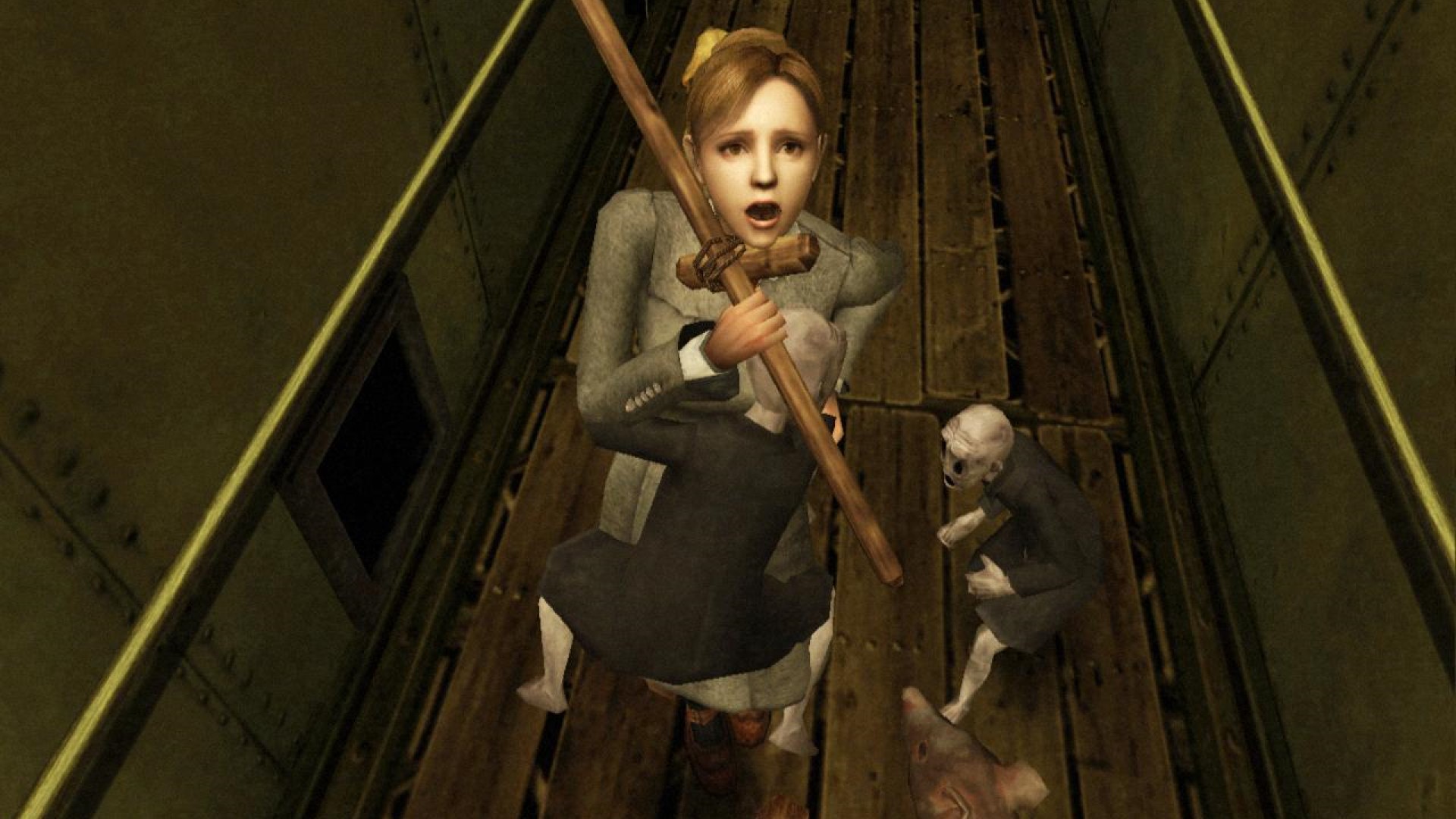
Purposely Wretched – The Thematic Power of Rule of Rose’s Combat
Rule of Rose is a game about cruelty and abuse, and how these horrific behaviors feed into themselves, creating further harm in a cycle that needs to be purposely broken. It’s heartbreaking in its depiction of children being left forever damaged – forever reshaped into their own kinds of monsters – by the abuses of adults around them. It’s gut wrenching in its unflinching look at its themes, being a work that can be deeply upsetting to take in.
It may also make you hurl your controller across the room in a blind rage at its clunky, unwieldly combat. Rule of Rose has a complex story that may have, arguably, been better served as a pure adventure game without combat, or as a narrative-based experience. In the state it’s in, combat is a frustrating affair where you’ll find distances difficult to parse, enemies have large invincibility windows, and you’ll often be outnumbered as you literally flail around trying to stab something with a dessert fork. It’s easily the game’s most frustrating element.
It’s also a vital part in creating the mood of the game. The combat, as enraging as you may find it, fully captures the helplessness of a child struggling to fight against the cruelty of the monstrous beings around them. It’s frustrating and disempowering and nigh-futile because that is the battle you’re fighting as a child in danger.
Rule of Rose spoilers ahead.
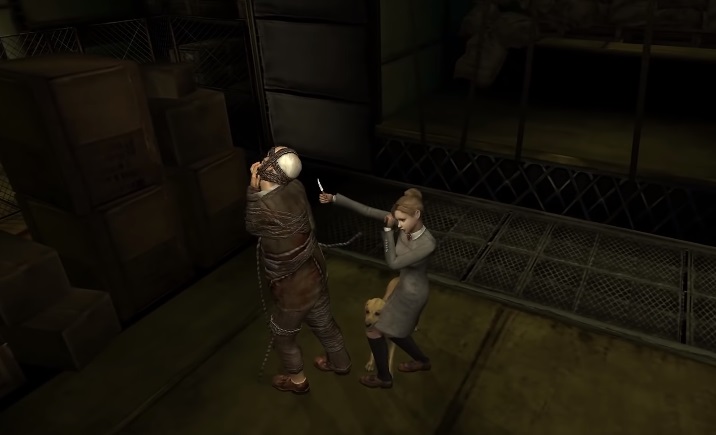
Jennifer, our deeply unlucky heroine, has returned to a strangely-familiar orphanage, one filled with alarmingly-cruel children. They taunt and pick at her from the shadows, steadily drawing her deeper into the orphanage and a world woven of childhood trauma made manifest. It’s a disturbingly cruel place she finds herself in, and she’s relying on you to carry her through it.
She constantly finds herself surrounded by ruthless beings that mean her harm in this world. Besides the vicious cruelty of the other children from the orphanage, there is also the misshapen, ghoulish creatures that often tail her throughout the game. These little beasts tend to travel in packs, can grab Jennifer and hold her in place, and can often attack fast enough to stun lock her in place long enough to kill her. There will likely be many times where you’ll die having been able to do very little about it, then sent back to a (likely distant) save point to try it all again. That doesn’t even factor in the game’s bosses, which hit harder and are far more durable than our goblin-like companions.
What can Jennifer do about these creatures in Rule of Rose? Not much. Jennifer is far from confident in her fighting abilities, swinging small kitchen utensils and other weapons of opportunity with little force. She leans away from her swings, turning her head and bringing her free hand up to protect her face. Her attacks don’t often have much reach and are so slow that they leave her open to being hit back. You can tell from her posture and movements that she doesn’t know how to fight, and likely doesn’t want to.
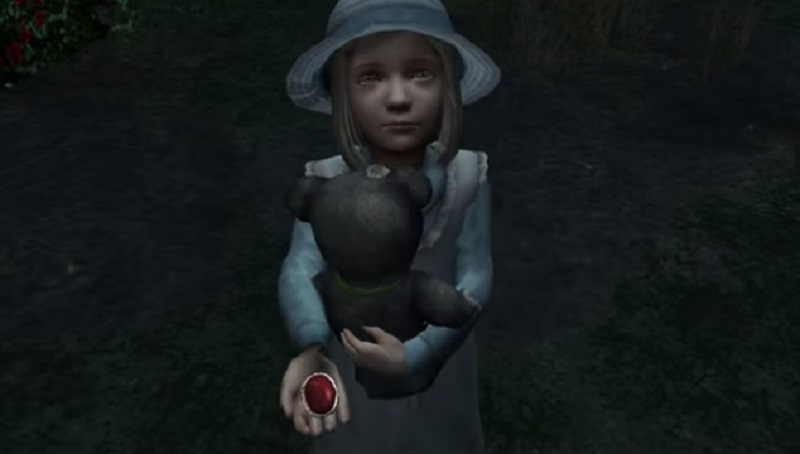
So, you have an aggressive, fast, and persistent enemy force facing off against a young woman that can barely fight back. It’s a recipe for a potentially-aggravating combat system, but this is further compounded by combat quirks where your swings seem to miss when they really should have hit, or long periods where you can’t hurt your foes. Your enemies tend to be incredibly lucky as well, hitting you when they looked like they missed. It’s not fair.
But what about the story or themes of Rule of Rose is fair? The game is a quagmire of different abuses heaped on its children and characters, with the abused in turn becoming abusers themselves. The cruelty swirls around this game in an atmosphere of utter despair that feels inescapable. I honestly have a very hard time playing this game because I can’t handle how heavy its themes are, and how the game forces you to stare into the way abuse can poison the lives of those it victimizes. Many victims of abuse can turn their lives around or go on to do great good for the world and others, but in this game, abuse only seem to replicate itself.
Jennifer’s suffering is not fair. It’s not fair to see how the various kids in the game are also suffering from the vicious actions of the adults around them. It’s not fair that these victims don’t get a chance to be freed from this cycle by the story’s end – that there’s nothing we can do but watch this lethal impact happen, every moment stretched out into an endless agony. You want justice. Some good to come from all this. But nothing is fair about it.
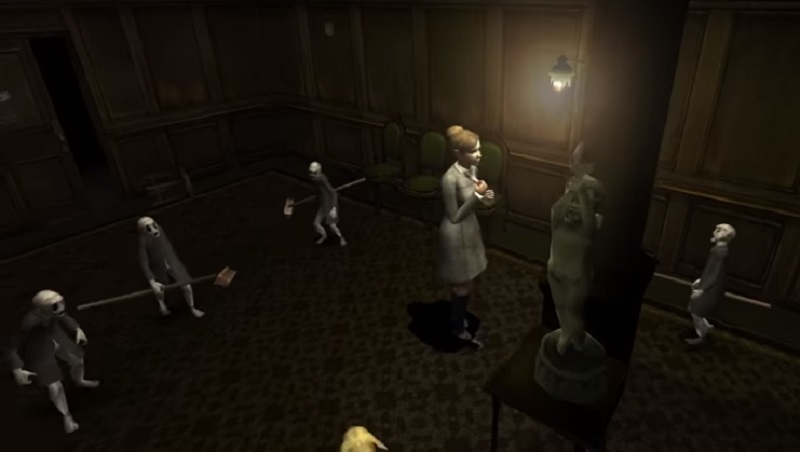
While the player has this detail beaten into them by the plot, the combat is doing a similar job. The combat simply doesn’t play fair, constantly beating the player down, making them lose progress. It stomps them as they attempt to move forward through the story, and crushes them when they try to stand up for themselves. It’s a ruthless beating any time you enter a fight in Rule of Rose, and it feels like all you can do is run away. But then you find another dozen of these hideous things choking a hallway, and all it takes is a single mistake to become dogpiled.
What could any of these children do to avoid their fate? How could they stand up to the things that hurt them? Was there anything they could do beyond a feeble punch? How far could they run before they would get caught? What could they hope to have done when the care system that was supposed to support them instead surrounded them with adults who hurt them? As a child, what can you even hope to do when the world around you is designed to trap you with your abusers?
Jennifer has been thrown into this situation – trapped with her abusers in a cycle of pain that is difficult to break or escape. In this same vein, fighting back against abuse (in the literal sense of fighting in the game’s combat) is something that is extremely difficult to do. Fleeing or fighting come with great challenges. Nothing works well. The odds are highly against you, and most frequently unfair.
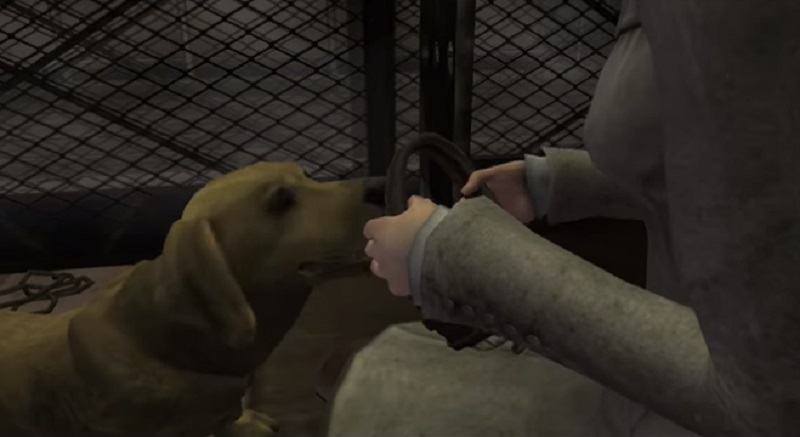
As the player, the combat makes you face the unfairness of this situation through the combat. You share in a kind of frustration, fear, and anger as you try to fight back when you’re outmatched. When these systems break down, and you fail because the game feels like it’s working against you, that rage you feel is similar to Jennifer swirling mass of fear, hopelessness, frustration, and rage.
How would it feel to be unable to escape this? To know these adults are supposed to help you, but don’t? To know, on some level, that you shouldn’t have to suffer this, but you’ve had the horrible luck of falling into this existence?
Many forms of media can carry you along with the visuals, story, and themes of a piece, but games have a powerful interactivity in them. They bring the player along for the journey, although often, it’s challenging to get the player’s feelings to match up to those of the protagonist. Rule of Rose has managed to draw the player in to that sense of despair that must be assailing Jennifer as she tries to get through her life here, only to find further abuses heaped on her, and further abuses making themselves clear as you play.
Through its unfair combat, Rule of Rose makes you feel the slightest hint of that whirlwind of emotion I imagine Jennifer felt as a child suffering, and as she watched her friends suffer as well. It’s so many feelings mixing together to make you feel like a child trying to escape impossible odds. You feel anger and frustration because that’s what it would feel like for a child trying to get away from this. You join Jennifer in her aversion to fight, even against all of this cruelty, because it feels futile. It’s feels unfair because nothing about this situation is fair.
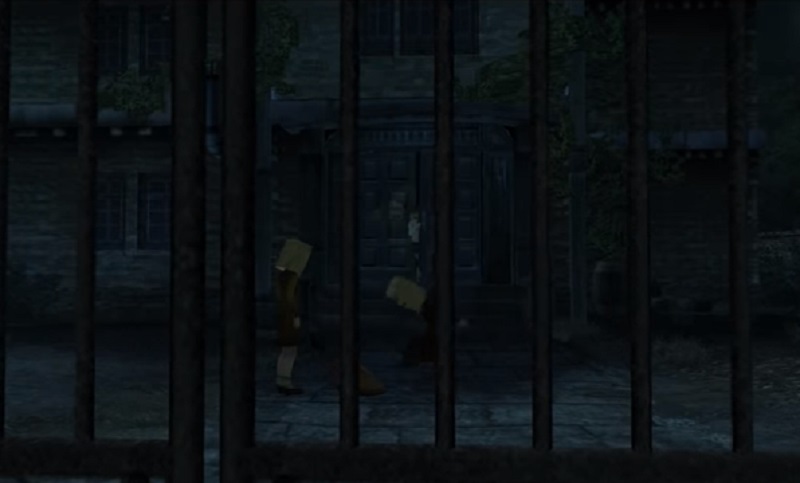
The combat system in Rule of Rose is a wretched thing, and makes it very difficult to get through the game. That adversity, “unfair” as it arguably is, captures some of the emotions that I imagine Jennifer would be going through as a helpless child trying to fight back against abuse and monstrosity. They drive home how afraid and incapable she must have felt, and how sometimes, it didn’t matter what you did.
Should combat in a horror game always feel fair and balanced, though? When you’re battling against supernatural killers or the manifestations of our own agony, should we be well-equipped to fight them? It can get annoying from a gameplay perspective, but to really feel that sense of fear and despair, I feel that sometimes horror game combat should be unwieldly and unfair. That it actually strengthens the themes of the game when you cannot fight back well. Player enjoyment is not the highest emotion that horror art can strive for, after all. Sometimes, it’s about dragging us down into the mire of hopelessness and seeing if we can overcome, not when.
Like Jennifer, though, you need to keep pushing forward when it feels impossible or unfair. You can’t stop driving forward against the abusers and the poison they’ve left in your life. Even if it feels like you can’t do it, you have to keep on fighting, because there is always some hope that you can come out the other side. So, even in its frustrating state, there is the tiniest bit of hope within it. Even if I despise the combat in the game, I can only see it as an element that enhances the game’s themes, and as a way of forcing some positive effects onto the game world. Maybe you can come through with some answers you need to move on with your life.
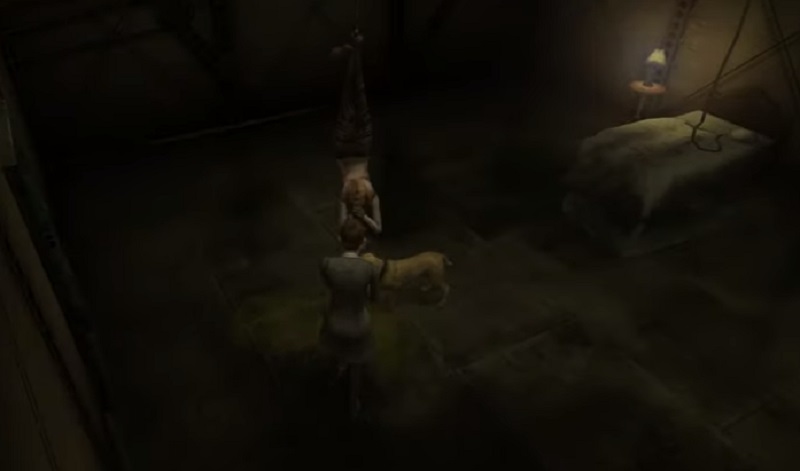
I say this as someone who hasn’t suffered abuse himself, though, so I’m only speculating on this sense of hope. I want Jennifer to find some peace at the end of all this. For her struggle – the struggle I tried to get her through – has given her the knowledge she needs to begin to deal with this point in her life. I cannot imagine it does, but I cannot bear that the weight of the despair in this game. I need for this battle, against the combat system and against the game’s story, to have brought some potential good in the future. I highly doubt it does, but I hope that Jennifer’s crawl through this personal Hell means she can begin to have some hope in her life.
Rule of Rose may have an annoying combat system, but it’s an integral part of its themes as well, capturing the fear and helplessness of a child facing cruelty all around her, and through overcoming it, players can also gain a small sense of hope that we can overcome the toxins of abuse and bring back some hope to our existence, breaking an endless cycle of abused and abusers.


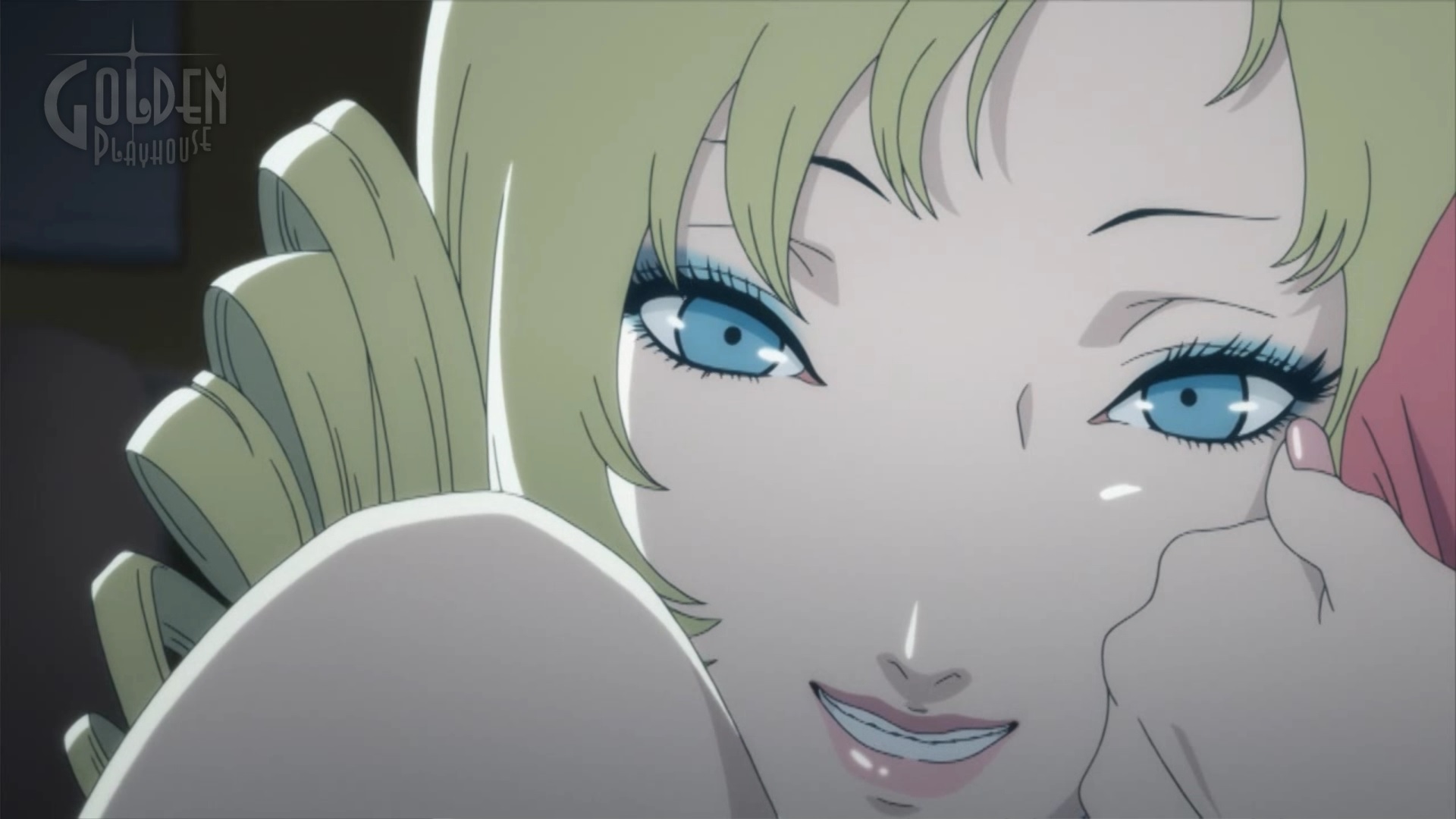

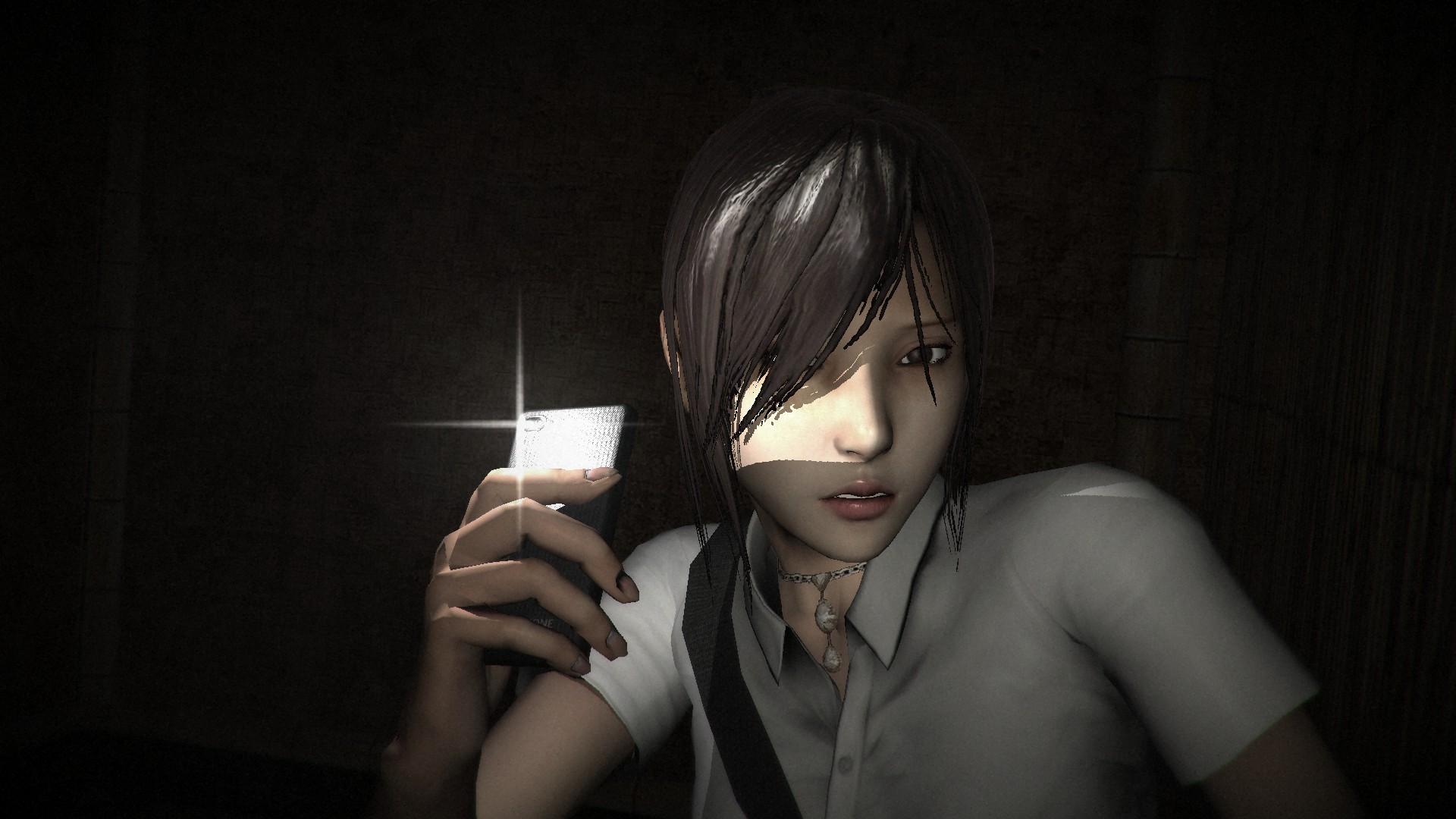
Buff Buffington
So the clunky combat sucks…on purpose. Lol
Expert level spin there
I suppose it also has massive framerate drops, low resolution textures, randomly crashes to desktop, and periodically deletes your saves,,,”for immersion”
gee…can’t wait to play it
Ted Hentschke
Bruh, it’s a fun little opinion piece on a game that came out 14 years ago. Calm down.
Momo The Killer Sandwich
Whelp, looks like i’ll be downloading a trainer, and blowing your “thematic” combat to shit then
I don’t care what your theme is. Frustrating, clunky controls, and unfair combat are not a good “design choice”
idcompiler
Never heard of this game, but your point about limited and frustrating controls in horror games is definitely valid. The devs that shaped the survival horror genre in Clock Tower, Alone in the Dark and Resident Evil figured it out early on that a game isn’t scary if your character feels powerful and completely under your control. You couldn’t rely on taking on threats head-to-head when your character moved like a tank stuck in mud, so you’re forced to careful inch forward knowing that you could be killed at any moment. Hell, even the first Castlevania had a slow, stiff character whose main weapon takes about half a second to respond to player input.
Joel Couture
Totally agree! And I had forgotten that aspect of Castlevania. Really made it feel like a good horror experience, even if I didn’t appreciate the mechanic when I played the games as a kid.